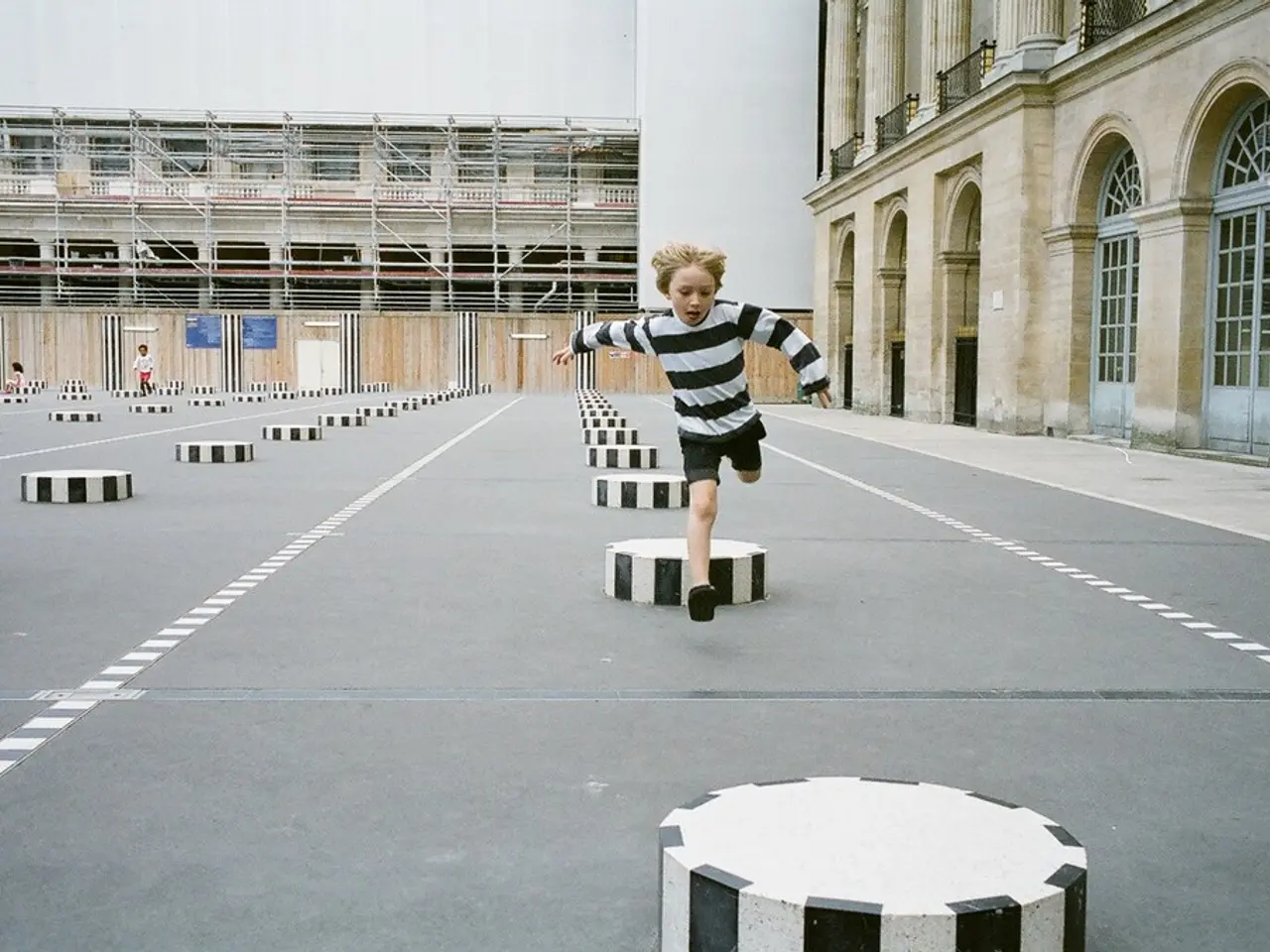Investigating interactive education through gaming at the Children's Museum in Lecce
In the realm of early childhood education, play-based learning is emerging as a powerful and holistic approach that nurtures young minds in various domains. This method, which has been extensively researched and endorsed by organisations such as the Harvard Center on the Developing Child, the LEGO Foundation, and the American Academy of Pediatrics, offers numerous benefits for cognitive, physical, social, and emotional development.
First and foremost, play stimulates critical thinking, problem-solving, and reasoning skills. Activities like puzzles and memory games foster cognitive abilities, enhancing brain development and improving math and literacy skills [1][2]. Physical play, such as climbing, running, and manipulating objects, supports the development of motor skills, coordination, balance, strength, and agility [1].
Play also encourages social interactions, teaching cooperation, communication, sharing, and conflict resolution. Through playing with peers, children negotiate roles, share resources, and resolve disputes, fostering skills that build strong relationships and academic success [1][2].
Moreover, play enhances emotional intelligence by helping children understand and regulate their own emotions as well as empathize with others. It supports self-awareness, self-regulation, and emotional competence necessary for emotional resilience and social competence [1][2][3].
Play-based learning promotes curiosity, creativity, and motivation to learn. It makes education meaningful and enjoyable, laying a strong foundation for continuous learning and confidence in navigating new experiences [3][4]. In fact, Albert Einstein once said, "Play is the highest form of research."
Play-based learning environments are child-led, process-oriented, open-ended, fun, and engaging. For instance, the Children's Museum's Funny Faces exhibit allows children to explore facial signals, emotions, and symmetry, helping them identify and manage feelings. The Captain's Wheel and Domino Drop exhibits provide opportunities for pretend play and early engineering, respectively.
Furthermore, play-based learning improves literacy, math, and emotional well-being [5]. Parents often remark on their children's deep engagement with playful exhibits and the persistence they show in problem-solving. The Yes Zone encourages children to engage in physical, social, and unstructured play for emotional regulation and confidence.
The American Academy of Pediatrics recommends "prescribing play" due to its strong evidence in supporting brain development and reducing stress in children [6]. Therefore, it is crucial for adults to respect, protect, and participate in play to enrich the learning experience.
For those interested in learning more about the importance of play-based learning, resources such as the Harvard Center on the Developing Child, the LEGO Foundation, AAP, and Play and Learning - Nature Human Behaviour are valuable sources of information. Play isn't a distraction from learning; it is learning, and when adults embrace it, learning becomes even richer.
Children can greatly benefit from play-based learning in their homes and gardens, as it nurtures cognitive, physical, social, and emotional development. Playing with puzzles and memory games can stimulate critical thinking, problem-solving, and reasoning skills, while physical play helps develop motor skills and coordination. Additionally, play fosters social interactions, teaching cooperation, communication, sharing, and conflict resolution, which strengthen relationships and academic success. Play also enhances emotional intelligence, aiding in understanding and regulating emotions, and empathizing with others. By exploring exhibits at places like the Children's Museum, children can further develop their curiosity, creativity, and motivation for continuous learning and personal growth. Adults can play an essential role by respecting, protecting, and participating in play to enrich the learning experience. For more information on the importance of play-based learning, resources such as the Harvard Center on the Developing Child, the LEGO Foundation, AAP, and Play and Learning - Nature Human Behaviour are valuable sources of knowledge. Embrace play not as a distraction from learning, but as an integral part of it for holistic education and self-development.




